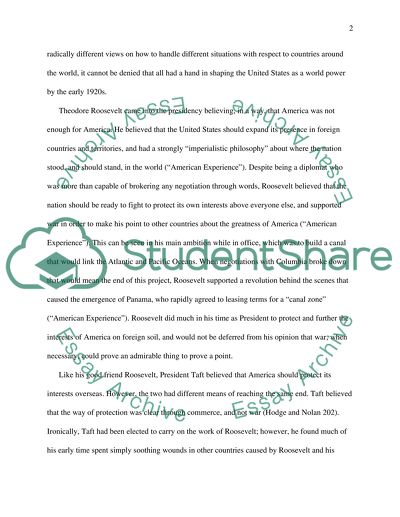America's Foreign Policies Essay Example | Topics and Well Written Essays - 500 words. Retrieved from https://studentshare.org/history/1591377-americas-foreign-policies
America'S Foreign Policies Essay Example | Topics and Well Written Essays - 500 Words. https://studentshare.org/history/1591377-americas-foreign-policies.


